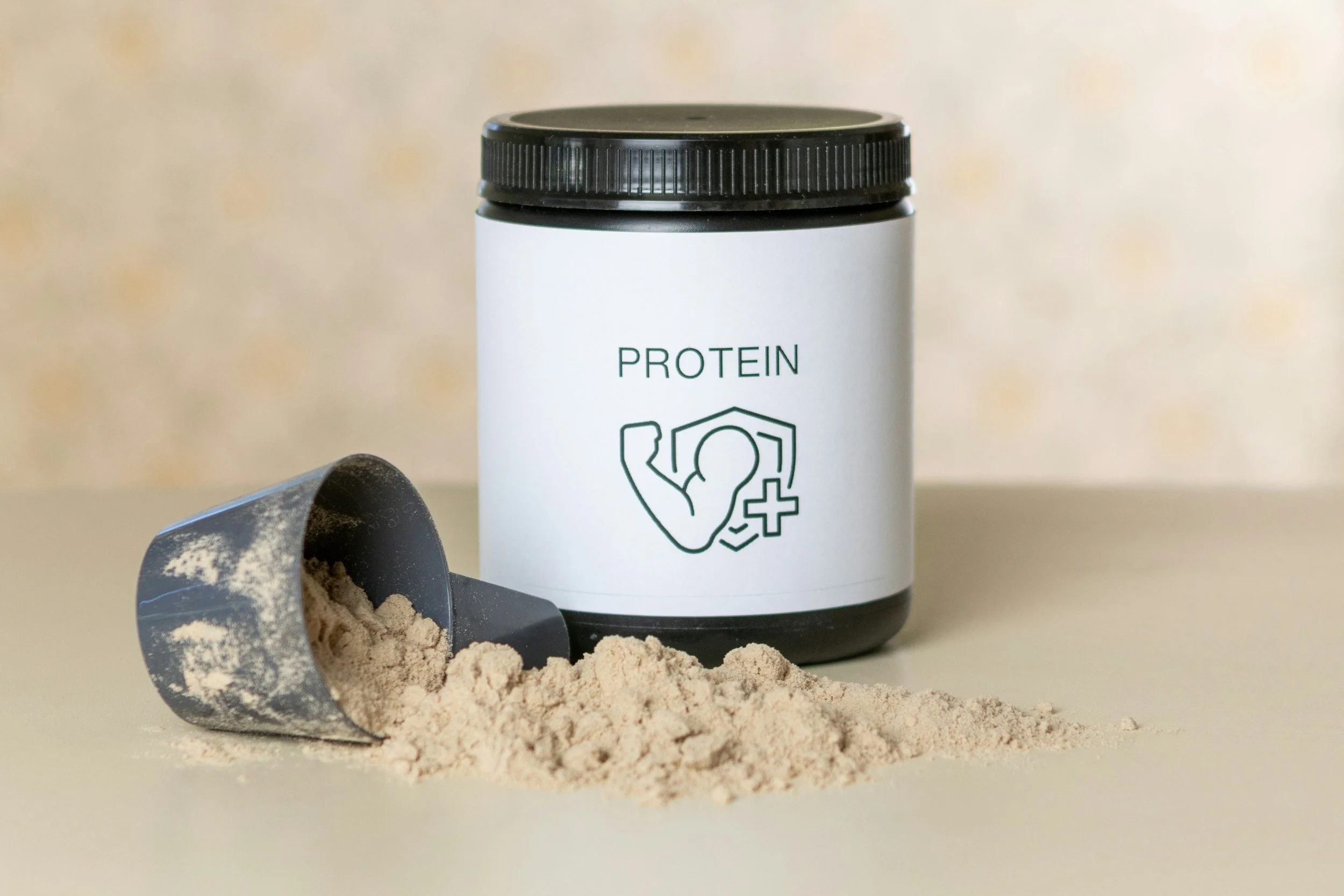You’re Probably Undereating Protein
Do You Get Enough Protein?
Most people don’t — and it’s not just a “gym bro” issue. Protein is the foundation of muscle, metabolism, hormones, enzymes, and immune health. Without enough of it, everything from your strength to your energy to your recovery starts to slip.
The Problem with Old Protein Recommendations
For decades, we’ve been told that 0.8 g of protein per kilogram of bodyweight (about 0.36 g per pound) is enough. But here’s the catch: Those numbers came from flawed nitrogen balance studies done on conscientious objectors in artificial lab settings decades ago — and they only represent the bare minimum for survival, not optimal health.
Modern research shows that healthy adults actually need:
1.0–1.2 g/kg just to meet baseline needs
1.6–2.2 g/kg (≈0.7–1.0 g per pound of body weight) for optimal muscle maintenance, metabolism, and overall health
Studies have gone as high as 2.8–4.4 g/kg in healthy individuals with no harmful effects
To keep things simple, I use the guideline of ~1 gram of protein per pound of target body weight (not for anyone with a health condition that may make higher protein intake unsafe — always check with your doctor before making nutrition changes). It’s easy to remember — and honestly, most people still fall short of that mark.
Why Protein Matters So Much
Unlike carbs or fat, protein can’t be stored for later use. Your body is constantly breaking down and rebuilding about 250–300 grams of protein every single day — muscle fibers, enzymes, immune cells, hormones, and more.
Most of those amino acids get recycled, but the protein you eat replaces what can’t be reused.
And when you eat “extra” protein?
It doesn’t get wasted. It goes first toward repair and essential functions, then gets slowly converted to energy through a steady process that doesn’t spike blood sugar like carbs do.
What Happens When You Don’t Get Enough
You won’t wake up one day with obvious protein deficiency. It creeps in over time — and shows up as:
Accelerated muscle loss
Weakened immunity
Poor wound healing
Mood changes or brain fog
Dr. Donald Layman’s research showed that people lost all the metabolic benefits — satiety, thermogenesis, muscle protection, and insulin sensitivity — when protein intake dropped below 100 grams per day!
Protein from Whole Foods First
I recommend doing everything you can to get your protein from whole foods during your main meals each day. There are so many great options: Beef, chicken, turkey, fish, pork, canned tuna or sardines, eggs, plain Greek yogurt, cottage cheese — the list goes on.
If you ‘re on a weight loss journey, use your target body weight to calculate your needs. The more active you are, the more protein you’ll need — and if you strength train, you’ll land on the higher end of that range.
Plant vs. Animal Proteins: Quality Matters
All proteins are made up of the same 20 amino acids, but their proportions matter.
Animal proteins provide about 40–50% essential amino acids in ideal ratios — including leucine, the key trigger for muscle protein synthesis.
Most plant proteins average closer to 35% and often lack sufficient leucine, so you typically need more total protein (and calories) to reach the same effect.
You can absolutely meet your needs with plants — it just takes a little more planning and variety. If you need to supplement, there are plenty of plant-based options, including pea, brown rice, and chia seed protein.
My Protein Picks (and Why I Avoid Whey)
Years ago, I fell into the “bro diet” trap — 2–4 scoops of whey protein a day — and eventually developed an allergy to it. Lesson learned: more is not always better when it comes to the same single protein source.
These days, I rotate between a few options I love and tolerate well:
SpaceMilk Protein Powder (This one is vegan…but not plant-based! Check it out!)
They’re all clean, easy to digest, and high in bioavailable amino acids.
Bottom Line
Aim for around 1 gram of protein per pound of target body weight (unless you have a medical condition that makes high protein unsafe — always check with your doctor first), prioritizing whole food sources whenever possible.
Use protein powders as a supplement — not a crutch. Protein isn’t just for building muscle. It’s for protecting your metabolism, hormones, and health as you age. And unlike carbs or fats, you can’t really “overdo” it — your body knows exactly what to do with it.
⚡️ Key Takeaway
⚡️Most adults need MUCH more protein than they think — not just to build muscle, but to maintain it, regulate metabolism, and age well.
⚡️Start by working your way up to roughly 1g per pound of target body weight (if it’s safe for you) DAILY, focus on whole food sources first, and remember: consistency matters more than perfection.
